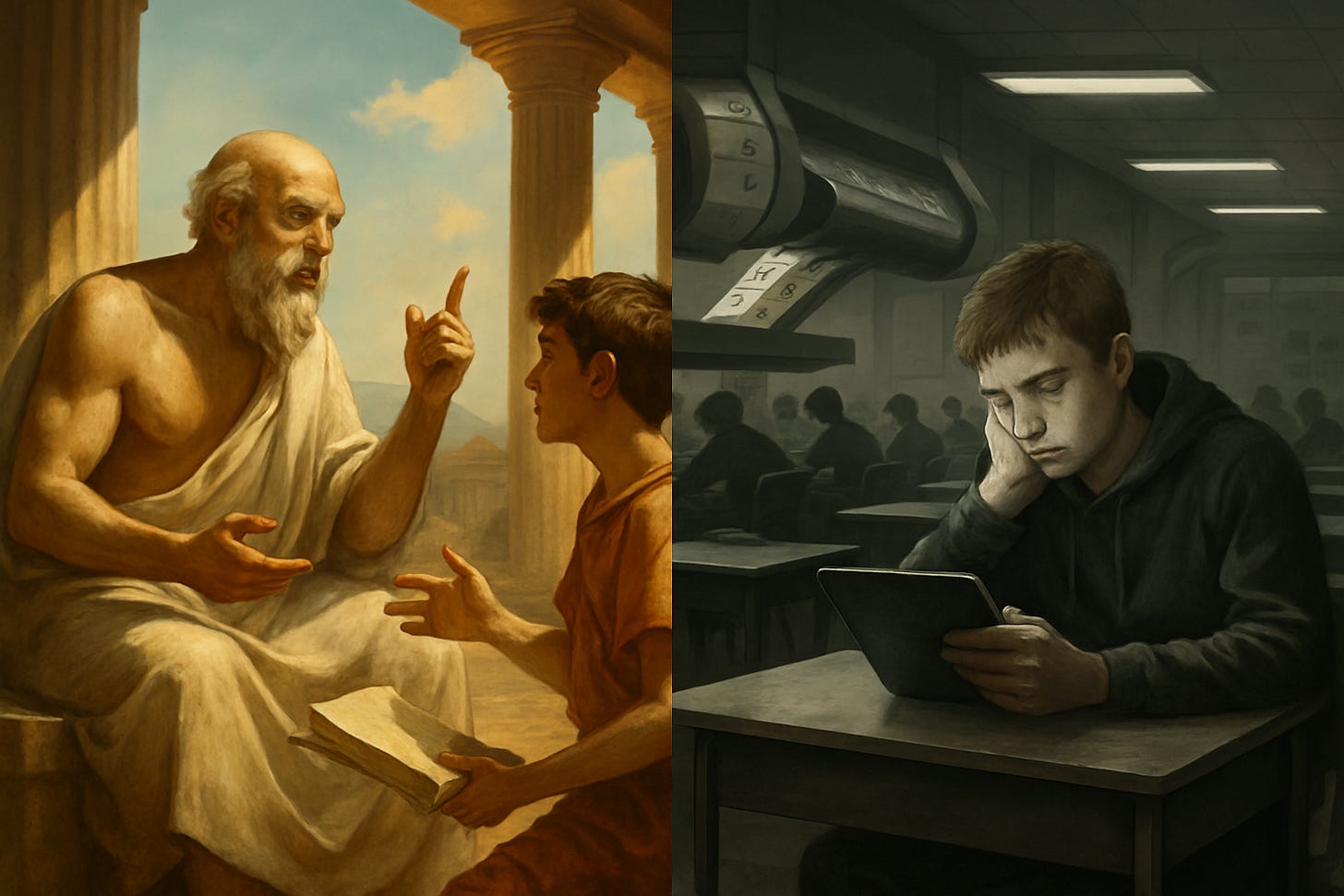
In an era where information flows like a digital torrent through our smartphones and laptops, one might assume that our education systems are producing sharper, more resilient minds than ever before, right?
Well … nope. The opposite seems true. Across the globe, from the United States to Europe and beyond, graduates emerge from schools and universities equipped with certificates but often lacking the mental fortitude to navigate complexity, question assumptions, or innovate beyond rote patterns.
This is a systemic failure that's breeding what I call "weak minds". That is:
Individuals who are passive consumers of information rather than active critically engaged thinkers.
That’s why my focus on critical thinking in numerous articles I have written.
As someone with four university degrees, nearly a decade of teaching experience in higher education, a strong background in artificial intelligence, and a lifelong passion for exploring the intersections of technology, society, and history, I've observed how modern education, designed in the industrial age, is ill-suited for the demands of our post-industrial world.
So, please, give me a moment of your time and I will try to explain why (I think) this is happening, while drawing lessons from the past and present, and exploring possible pathways toward reform.
After all, critiques of the education system go viral for a reason: they strike at the heart of our collective future.
Defining "Weak Minds"
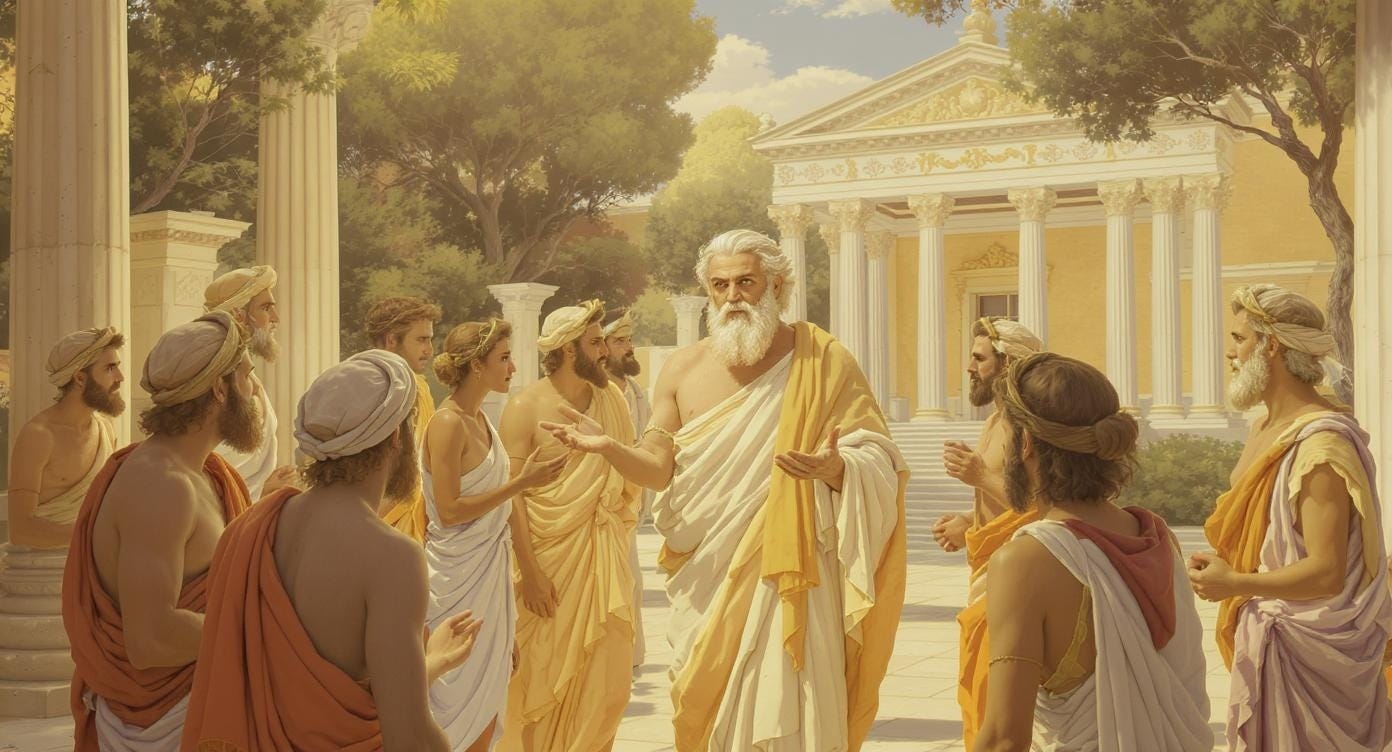
Let me clarify what I mean by "weak minds". Please, students and teachers, do not take this as an insult. This is a critique of outcomes. So, in this context:
A weak mind is one that's conditioned to accept surface-level knowledge without digging deeper.
A weak mind is a mind that prioritizes memorization over analysis. It is a mind that shies away from discomforting questions. Quite common today, isn’t it? We used to have all kind of discussions but more and more people are unable of engaging with controversial topics or even ideas they just do not agree with.
This is the product of an education system that values compliance over curiosity.
The ancient Greek philosophers (Socrates, Plato, Aristotle), emphasized dialectic reasoning. Their students were challenged to defend their ideas through rigorous debate. Socrates questioned (not lectured), forcing his pupils to confront contradictions in their thinking. Contrast that with today's classrooms, where standardized tests dominate, rewarding the regurgitation of facts over the synthesis of ideas. Not to mention that the word ‘forcing’ has become a forbidden word... As research points out, the prevalence of standardized testing and rote memorization has directly contributed to the erosion of critical thinking skills in modern education.
The Flaws Baked into the System
To understand why this creates weak minds, we must look into the flaws “baked” into the system.
First, modern education is predicated on the acquisition of knowledge rather than its application or critique. But knowledge IS the result of experimentation and critique!
Contradicting, isn’t it? It used to be that you have to go to a university to start questioning things, right? But even this is gone now …
Look at the schools today. They are similar to assembly lines but with a twist as we will see... The goal is to churn out students who can pass exams but struggle with real-world problem-solving and recently also with real-world conditions (e.g. competition, meritocracy, etc). The latter are gradually being removed from our society making things even worse.
Originally the first concept (assembly lines…), is by design:
The Prussian model of education, which was adopted widely in the 19th century, was intended to produce obedient workers for factories and soldiers for armies, not independent thinkers.
This system actively discourages thinking that isn't predefined or approved by authorities. Sounds familiar?
In the United States, for instance, reading scores have fallen to new lows on the NAEP for both 4thand 8th graders, with math showing some progress but remaining below pre-pandemic levels, chronic absenteeism persists at alarmingly high rates around 23-25%, and teacher shortages continue to reach crisis levels with tens of thousands of vacancies and hundreds of thousands of underqualified positions.
Are you wondering why AI is going to replace teachers?
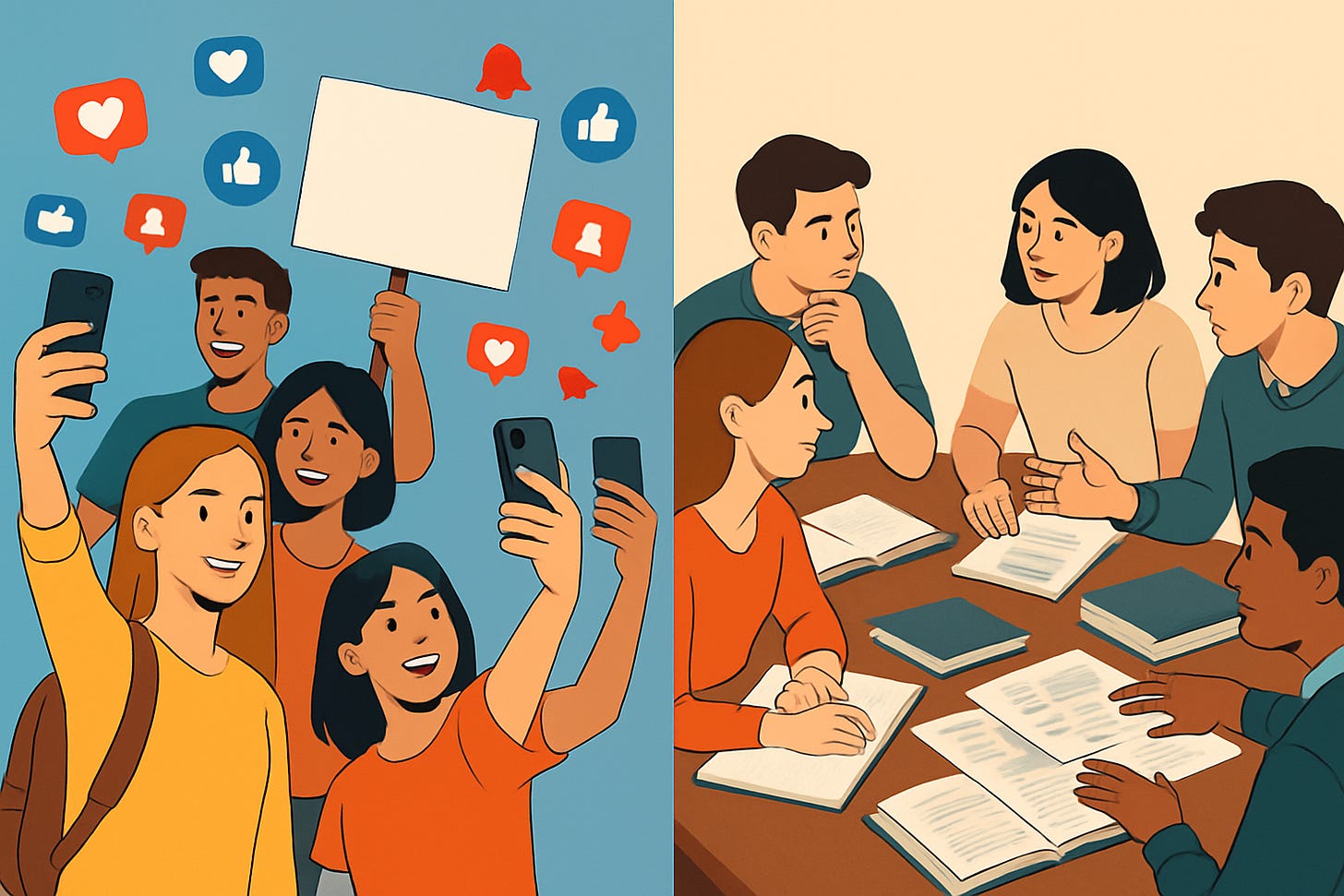
But we have another weird situation today: our educational system creates activists, but not the real ones, but the ones that the system wants to promote as ‘activism’.
The ones manifesting as performative wokeness that prioritizes virtue signalling over substantive change.
The result? Student energy goes into sanitized displays like social media posts, diversity workshops or threats to power structures, driven by a desire to appear caring rather than committing to meaningful reform. Tied to education's flaws of compliance over curiosity, schools promote "safe" causes such as oil-sponsored climate campaigns or equity initiatives avoiding economic critiques, pushing superficial online engagement amid pressures that yield virtue-signalling "activists" faltering at true advocacy.
However, historically speaking, real activism arose from rigorous, independent thinking and not hollow exercises diluting movements, rewarding conformity disguised as rebellion, parroting wokeness on inclusivity without critiquing intersections with capitalism or hypocrisy, serving as control that undermines trust and perpetuates vulnerability to manipulation.
Reform demands authentic civic education teaching historical activism deeply, promoting debates and student-led initiatives; by rejecting performative wokeness, we reclaim education for genuine change-makers.
These are symptoms of a deeper malaise where the instructional core, the relationship between teachers, students, and content has been eroded by policy decisions that prioritize metrics over meaning.
The Neglect of Critical Thinking
One of the most important failures is the complete disregard for critical thinking. Surveys show the public believes deficiencies in critical thinking are due to technology, changing social norms and, most importantly, the education system itself.
In middle schools, critical thinking skills are not prioritized and are forgotten as students progress, with teachers often ignoring them completely in order to cover everything in curriculum. Why? Because teaching critical thinking skills, requires time, flexibility and an ability to accept the unknowns of learning - none of which are offered when you are focused on your curriculum. What do we do instead? Students are taught reductive thinking, reducing complex problems into multiple choice answers. Creative thought is stagnated and questions discounted, ignoring the importance of developing students' capacity to think critically and independently.
The result? We get students who can recite facts but have difficulty with the unknown, for example: analysing biased news sources or discussing ethical dilemmas in AI.
Historical Parallels and Divergences
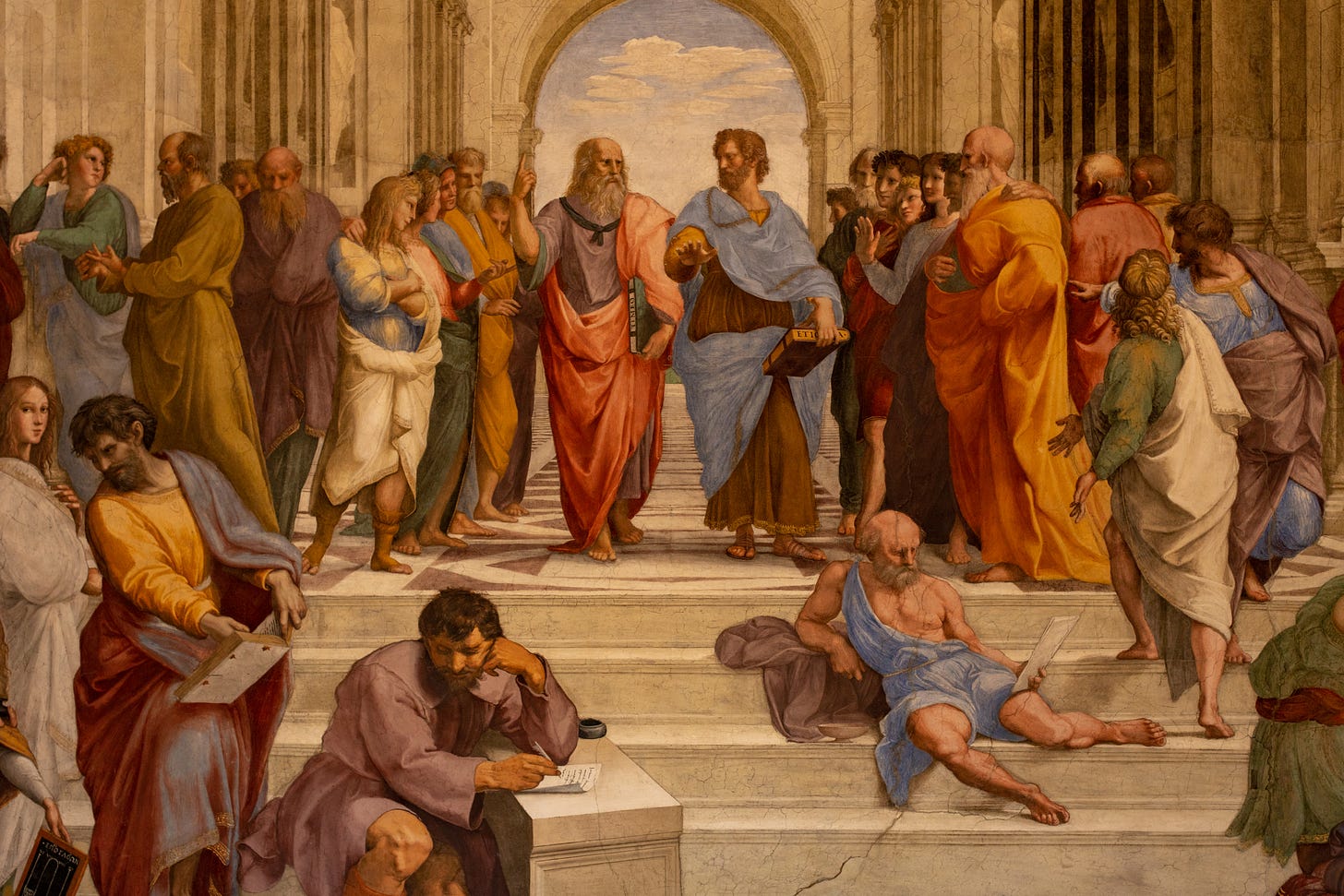
If we look into history we will find parallels that demonstrate this failure. In ancient Athens, education was embedded in creating citizens that thought rationally in order to govern their own lives.
The Socratic method was not just a method of teaching; rather, it was a protection against tyranny, it was an attempt to ensure that at least some minds were strong enough to resist being manipulated.
The Enlightenment saw John Locke and Jean-Jacques Rousseau assert that education should be about directing inquiry, and the ability to engage in moral reasoning. Specifically, Locke in "Some Thoughts Concerning Education" argued that it was critical to teach children to reason based on evidence, and to understand the danger of dogmatic forms of teaching. Today's systems have abandoned those key concepts. We are going backwards!
Present-Day Manifestations
Currently, these flaws play out in horrifying ways. A study conducted in the United States revealed that 45% of college students had no measurable gains in critical thinking, complex reasoning, or writing after attending college for four years! Of course, since education programs have little cognitive rigor and draw in the least qualified students who then become teachers, this should not be a surprise.
This gap is made worse with a major emphasis on mental health initiatives, which can, with good intention, be self-labelling anxiety or depression that corresponds with less successful coping and resiliency. Moreover, in classrooms today, learning approaches such as "whole language" reading or lax discipline fraud don't facilitate students learning the basics and create students who have no ability to read or be responsible. Teachers report there is zero authority in 2025, because weak principals allow disruptive students to interfere with the learning of all students.
The Exacerbating Role of Technology
It is technology that adds to the problem... For example, on the one hand, efficiency is a benefit of using AI tools such as ChatGPT; but, on the other hand, when students use these without analysis, it diminishes their critical faculties!
Additionally, as I've mentioned in past articles, social media hooks users into hyperconnected but shallow interactions, reflecting how education gives priority to breadth over depth.
Other barriers to critical thinking include heuristic-based judgements, that is quick and pseudo intuitive decisions based on heuristics that circumvents analytical thinking and levels of epistemological understanding, such as poor students not understanding how knowledge is constructed.
In countries like Pakistan and other developing countries, there are so many poor contexts and modes of punishment that it becomes even less likely to ground critical thinking. High drop-out rates reflect a loss of motivation.
Why This Critique Goes Viral?
There is a simple answer for that. Because it resonates with students, parents and employers alike. We live in a world facing multiple crises, geopolitical tensions, and AI disruptions. Weak minds are a liability.
As the adage goes, "Hard times create strong men. Strong men create good times. Good times create weak men. Weak men create hard times." We're in the "good times" phase, breeding weakness through comfort-oriented education.
Viral videos and essays decry how schools scam students with ineffective trends, echoing a global frustration. Even the Vatican, in encyclicals like Laudato Si', highlights how environmental education fails the poor, contributing to broader societal vulnerabilities.
Pathways to Reform and Hope
There is an opportunity for us to change to ensure that critical thinking becomes the centre of curriculum.
Imagine schools with interdisciplinary projects replacing subjects in silos or schools that stack history, science, and ethics as projects allow students to see connections.
Imagine teacher development that evolves the teachers depth of thinking and not solely the subject knowledge. Teachers who are always searching for the best and brightest diamonds in the rough.

Policymakers can observe the strides being made by education systems like Finland that have placed play and inquiry at the centre of their education system, a place where critical thinking could never be more robust.
But we can be citizens that promote, endorse and advocate for critical thinking by educating ourselves, reading the classics, discussing ideas that matter with our peers and challenging social norms. In my work as a CEO and working with AI, I've seen how tools can augment, not replace, human reasoning if used critically.
Modern education creates weak minds not by accident but by design.
By neglecting critical thinking, it leaves generations vulnerable to manipulation and stagnation. And we do not want that!
Let’s be optimistic (again). As with past revolutions in thought, change is possible. But we need to demand an education that builds strong, inquisitive minds, drawing from ancient wisdom to forge a better future. If this resonates with you, consider how you can contribute? Perhaps by advocating in your community or exploring further reading?
Thanks for reading The Modern World! Looking forward to your thoughts.


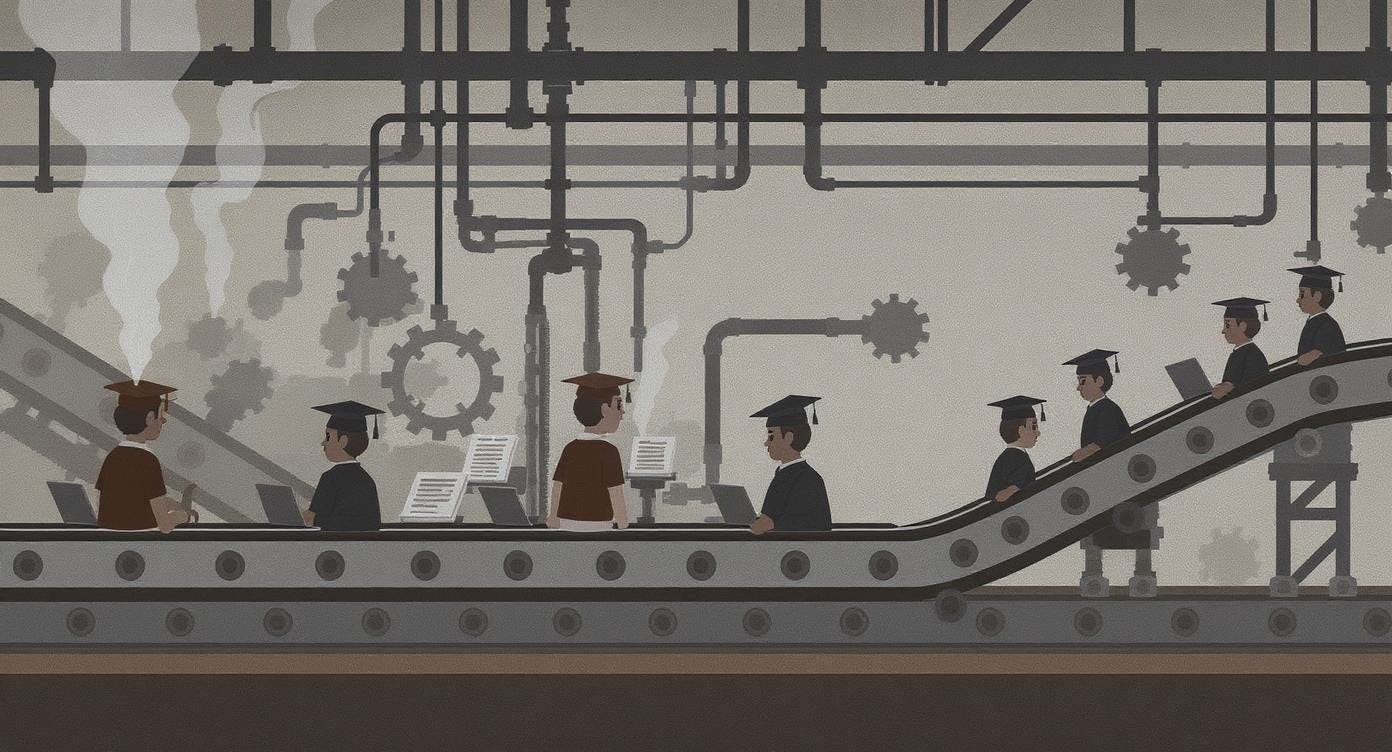
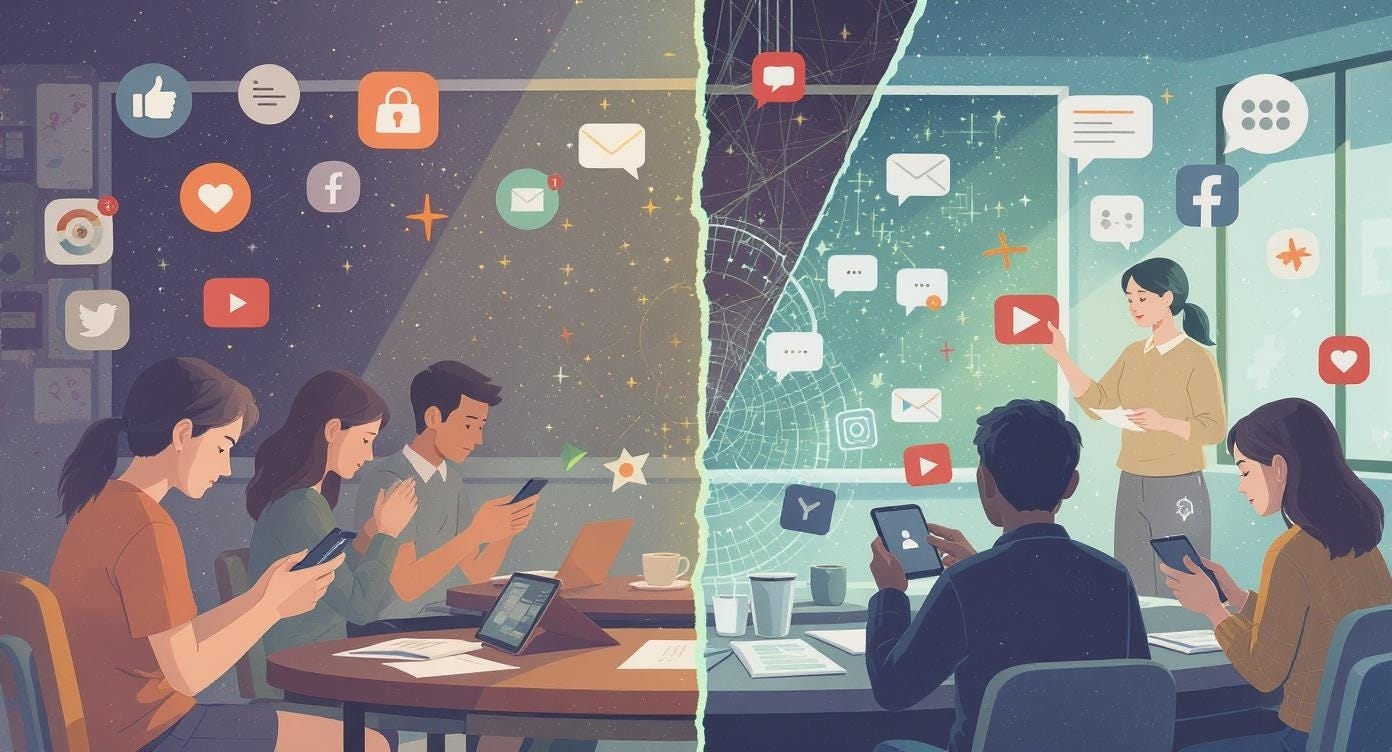
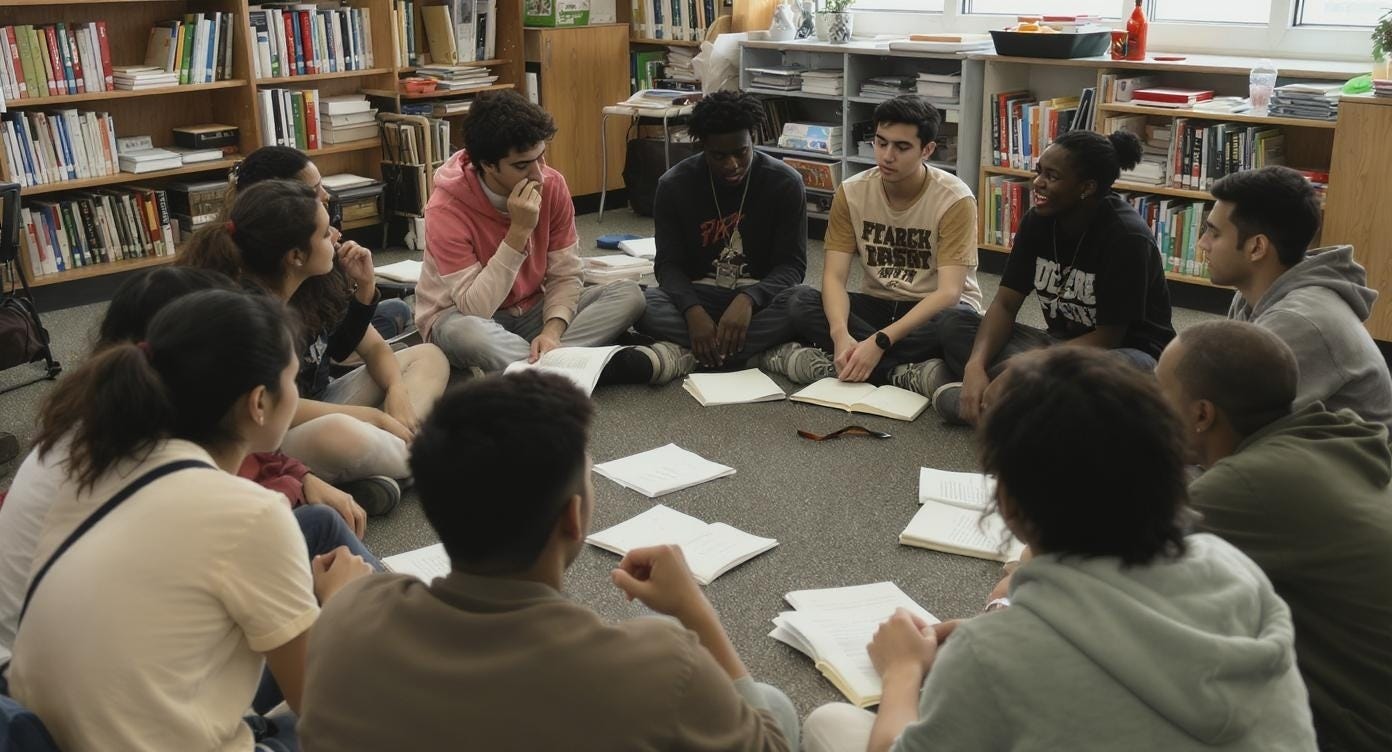
Certainly an in-depth analyses. Many flaws in the education system. For one, universities are not academic centers any more. They have become business centers. What kind of an examination is it where pupils are allowed access to the internet to answer questions. Now with AI usage on the rise, pupils will use AI in stead of researching to develop critical thinking.
Would the Secretary of Education even read or notice your analyses, let alone take action to remedy lacks and faults in the education system?
But you've done great service by making the public aware of some problems in the education system. Thank you on their behalf.
The modern U.S. School system is designed to crush curiosity, because curious people question things. Remove the ability to read the ideas, and the ideas die. https://torrancestephensphd.substack.com/p/forget-free-college-how-about-we